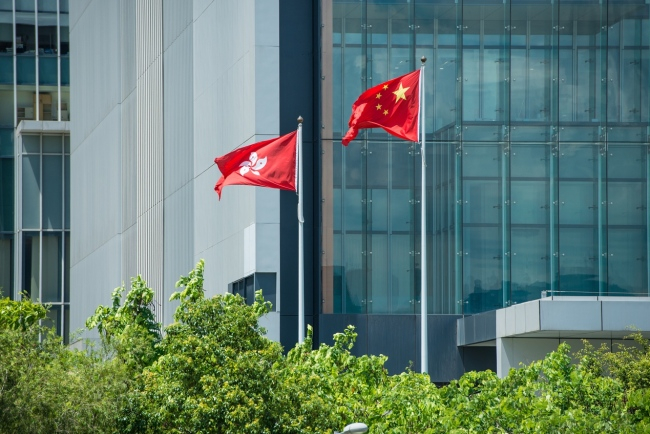

Editor's note: The article was first published by China Plus on August 31, 2019. The article does not necessarily reflect the views of CGTN.
On Friday, the administration in Washington attempted to link progress in China-U.S. trade talks with the situation in Hong Kong, despite only a month ago acknowledging that it was an internal affair for China. This flip flop by the United States might at first seem confusing, but it's not hard to spot a pattern in Washington's behavior.
When the trade talks are going well, Washington seems content to stay out of China's internal affairs. But when the talks run into trouble, Washington tries to drag the Hong Kong issue into trade negotiations. This shows that Washington doesn't really care about the people in Hong Kong. Rather, it is using the situation in Hong Kong as leverage for its own purposes.
The affairs of Hong Kong are part of China's internal affairs. China's government is entitled to exercise sovereignty over Hong Kong in accordance with the country's Constitution and the Basic Law of the Hong Kong Special Administrative Region, and it is entitled to do so without interference by external forces. Since Washington has acknowledged that Hong Kong is part of China, and that China should solve the problems in Hong Kong on its own, it should stop trying to link the Hong Kong situation with China-U.S. trade negotiations.
China has consistently advocated that unrelated issues should not be dragged into the trade talks. They're already complicated enough as it is, especially now that Washington has said it will impose even more import tariffs on goods from China. This raises the risk that the dispute will lead to greater adverse impacts for both sides and the world at large.
The U.S. Commerce Department on Thursday lowered its estimate for economic growth in the United States to two percent in the second quarter, down from 3.1 percent in the first quarter. American households will feel the pinch: the average household budget will be up to 1,000 U.S. dollars a year worse off because of the tariffs, according to research by JP Morgan Chase.

The national flag of China and the regional flag of the Hong Kong Special Administrative Region flutter outside the government building in Hong Kong. /VCG Photo
"When it comes to trade policy, the Trump Administration is in a hole that it keeps digging deeper," said Bryan Riley from the National Taxpayers Union Foundation. "A good first step would be to stop digging by imposing a moratorium on any new taxes, including tariffs that weaken the U.S. economy. Even better, the White House should remove its ineffective and self-destructive tariffs."
Under the mounting pressure on the domestic economy, some voices in Washington are calling for another round of face-to-face talks with China. Beijing is willing to resolve the trade issues through consultation and cooperation, and has maintained effective communication with the American negotiators. It also believes that an urgent task for Washington is to stop the introduction of further tariffs on 550 billion U.S. dollars of goods from China, in order to prevent a further escalation of the dispute.
Negotiation requires the participation of both parties, who need to be willing to meet each other half way. The United States should return to the negotiating table so that both sides can work through the economic and trade frictions in a spirit of equality and mutual respect.
As for the Hong Kong situation, Washington needs to clearly distinguish political issues from economic ones. The trade talks should be about just trade. Any attempt to use the Hong Kong issue as a bargaining chip will not succeed.
(If you want to contribute and have specific expertise, please contact us at opinions@cgtn.com.)

Copyright © 2018 CGTN. Beijing ICP prepared NO.16065310-3
Copyright © 2018 CGTN. Beijing ICP prepared NO.16065310-3